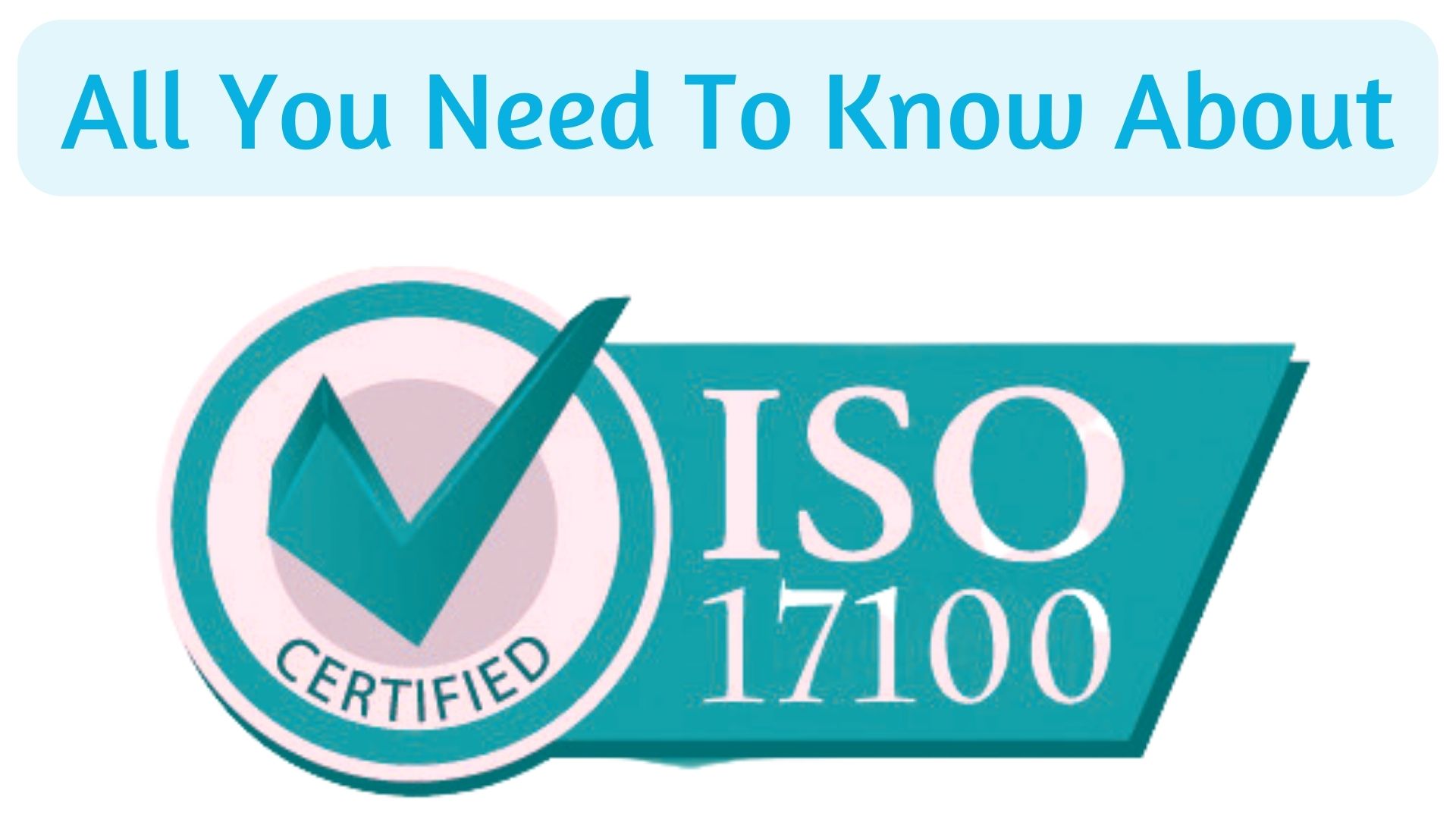In today's globalized world, accurate and reliable
translation services play a vital role in facilitating effective communication
across languages. However, the quality of translations can vary significantly,
and it can be challenging for clients to determine the level of proficiency and
reliability of translation providers. This is where ISO 17100 certification
comes into the picture. In this blog post, we will explore the significance of ISO
17100 certification and its role in ensuring quality in translation services.
What is ISO 17100 Certification
ISO 17100 is an International Standard that specifies the
requirements for translation services, published in 2015. It covers every
aspect of the translation process, from the qualifications and competencies of
the translators and revisers to the workflow and quality management system of
the translation service provider (TSP).
Benefits of ISO 17100 certification
The main benefits of ISO 17100 certification are:
- It ensures that the translation services meet
the highest quality standards and comply with the applicable specifications of
the client, the industry, and the legislation.
- It provides a clear and transparent framework
for the translation process, from the initial quote and agreement to the
delivery and validation of the final product.
- It enhances the credibility and reputation of
the TSP, as it demonstrates its commitment to quality and customer
satisfaction.
How can ISO 17100 benefit my Business?
ISO 17100 is an Internationally Recognized Standard for
Translation Services that specifies the basic procedures, resources, and other
factors required to offer a quality translation service that fulfils applicable
criteria. By following the translation process steps defined by ISO 17100, your
business can ensure that your translations are accurate, consistent, and fit
for purpose. ISO 17100 also helps you to demonstrate your professionalism and
competence to your clients and potential clients, as well as to differentiate
yourself from competitors who do not comply with the standard.
What is the process for getting my company ISO 17100
certified?
1. Understand the standard and its benefits: The ISO
17100 covers various aspects of translation services, such as project
management, human resources, technical resources, quality management,
contractual framework, and service delivery. It also defines the roles and
competencies of translators, revisers, reviewers, and proofreaders. By
complying with the standard, you can ensure that your translation services are
consistent, reliable, and meet the expectations of your clients.
2. Conduct a gap analysis: Before applying for
certification, you need to assess your current practices and identify any gaps
or areas for improvement. You can use a self-assessment checklist or hire a
consultant to help you with this process. You should also review your
documentation and records to make sure they are complete and up-to-date.
3. Implement the necessary changes: Based on the gap
analysis, you should develop an action plan to address any non-conformities or
weaknesses in your translation processes. You might need to update your
policies and procedures, train your staff, invest in new tools or equipment, or
revise your contracts and agreements. You should also monitor and measure your
performance and effectiveness using key indicators and feedback mechanisms.
4. Choose a certification body: Once you are ready to
apply for certification, you need to select a certification body that is
accredited by an authoritative body to offer ISO 17100 certification. You can
find a list of accredited certification bodies on the ISO website or on the
websites of national accreditation bodies. You should compare different
certification bodies based on their reputation, experience, fees, and services.
5. Undergo an audit: The certification body will
conduct an audit of your translation services to verify that they comply with
the ISO 17100 requirements. The audit will consist of two stages: a document
review and an on-site visit. The document review will check your documentation
and records for completeness and accuracy. The on-site visit will observe your
translation processes in action and interview your staff and clients.
6. Receive your certificate and maintain it: If you
pass the audit, you will receive a certificate that confirms your compliance
with the ISO 17100 standard. The certificate is valid for three years, but you
will need to undergo periodic surveillance audits to ensure that you continue
to meet the standard's requirements. You will also need to report any changes
or incidents that might affect your certification status.
How can you verify if a TSP is ISO 17100 certified?
There are two ways to check if a TSP has obtained ISO 17100
certification:
- You can ask for a copy of their certificate,
which should be issued by an accredited certification body and include
information such as the scope, validity, and reference number of the
certification.
- You can search for their name on the online
database of certified TSPs maintained by ISO
(https://www.iso.org/certification.html).
What should you expect from an ISO 17100 certified TSP?
When you work with an ISO 17100 certified TSP, you can
expect that:
- They will assign qualified translators and
revisers who have the appropriate education, experience, and skills for your
project.
- They will follow a documented and standardized
workflow that includes steps such as preparation, translation, revision,
proofreading, final verification, and delivery.
- They will use adequate technology and resources
to support the translation process, such as translation memory tools,
terminology databases, and quality assurance software.
- They will implement a quality management system
that monitors and evaluates their performance, identifies risks and
opportunities for improvement, and ensures customer feedback and complaints are
handled effectively.
Conclusion
ISO 17100 certification is a valuable indicator of quality
and professionalism in translation services. By choosing an ISO 17100 certified
TSP, you can be confident that your translation projects will be handled with
care and accuracy by qualified experts who follow a rigorous and transparent
process.
There is also other ISO certification that will benefit your organization; the companies should apply certificate through the leading consultant of ISO Certification in Delhi.

